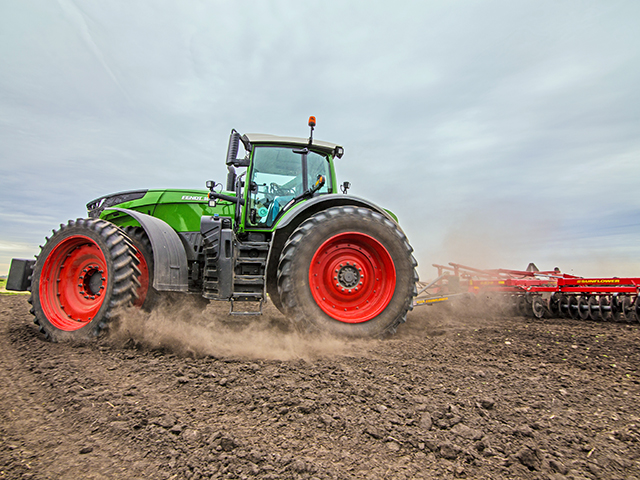Machine Industry Eyes Aging Farm Fleet
Machinery Outlook - Machine Industry Eyes Aging Farm Fleet
Farm machinery manufacturers performed remarkably well against the COVID-19 pandemic in 2020. In fact, annual sales of tractors and combines in 2020 exceeded sales in 2019, according to the Association of Equipment Manufacturers (AEM). AEM represents the off-road machinery industry.
Robert Crain, AEM vice chair and senior vice president and general manager, North America for AGCO, says the economy and machinery industry continue to improve after the initial disruptions of COVID-19. There is some evidence the expansion has been the quickest recorded in more than two years. Surveys show growing optimism among U.S. farmers for making significant investments in equipment -- perhaps the largest the industry has seen since 2015.
The national farming fleet is as "old as we have ever seen it," Crain explains. "It is ready for replacement. [The numbers] suggest positive manufacturing performance, especially for ag in the coming months."
Crain sat on a recent AEM panel that discussed machinery production, technology and trade issues for 2021.
Tractor sales were fairly remarkable in 2020. Ag equipment manufacturers sold nearly 50,000 more tractors and combine units in 2020 than in 2019 across North America. Tractor sales in the U.S. were led by machinery 100 hp and below. Sales of those tractors topped 265,000 units -- an increase of 16% over 2019. Combine sales for all of 2020 rose 5.5%.
P[L1] D[0x0] M[300x250] OOP[F] ADUNIT[] T[]
Sales of tractors more typically found on commercial farms rose by 709 units over 2020. That includes tractors of more than 100 hp (19,165 units sold) and 4WD tractors (2,992 units sold).
COVID INFLUENCE
The pandemic had an outsized impact
on manufacturers, Crain says.
"The pandemic has changed 100% how we reach our customers and the expectations of our customers in how we support them," he explains. "Digital communications, taking care of parts and service needs has changed 100%."
Steve Berglund, AEM chair and executive chairman for Trimble, says the pandemic may have reversed thinking about just-in-time inventory management. "[Just-in-time] made the industry more efficient, but the experience of the last 10 months has put into question some of the guiding principles of manufacturing," he says. "In the event of something like the pandemic, it makes the ability to deliver a more difficult proposition." Berglund speculates manufactures may adopt inventory practices that enable them to better weather historic events such as COVID.
TECHNOLOGY
The panel discussed its infrastructure and technology priorities for 2021.
Expanding broadband services, especially mobile broadband, is a key infrastructure need, they agree. "For our customers to be able to take advantage of, to be competitive worldwide with the latest and greatest technology. Rural broadband is going to be a necessity for our customers to be competitive," Crain says.
Berglund adds, "The machine as defined in terms of horsepower and inherent capacity is no longer necessarily the driving issue. How well that machine fits into an information architecture ... so that the entire farm [is] being managed together. I think there is a whole level of challenge there."
Without a robust wireless connection to farms, managers and employees, "you deprive work crews in remote areas access to [big data] applications," he continues. "Mobile enables the new generation of applications. Without connectivity, you simply cannot use all of the available technologies."
[PF_0321]
(c) Copyright 2021 DTN, LLC. All rights reserved.




